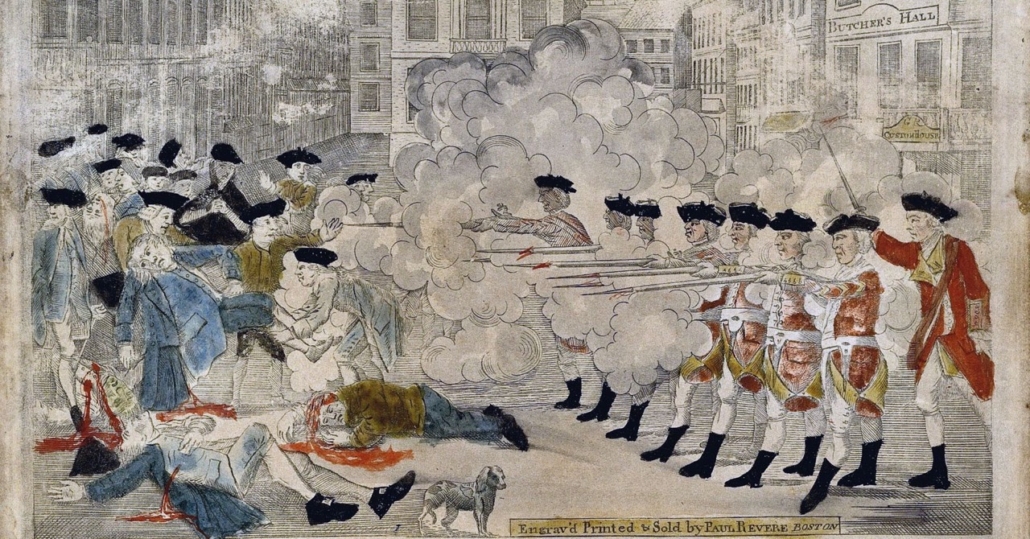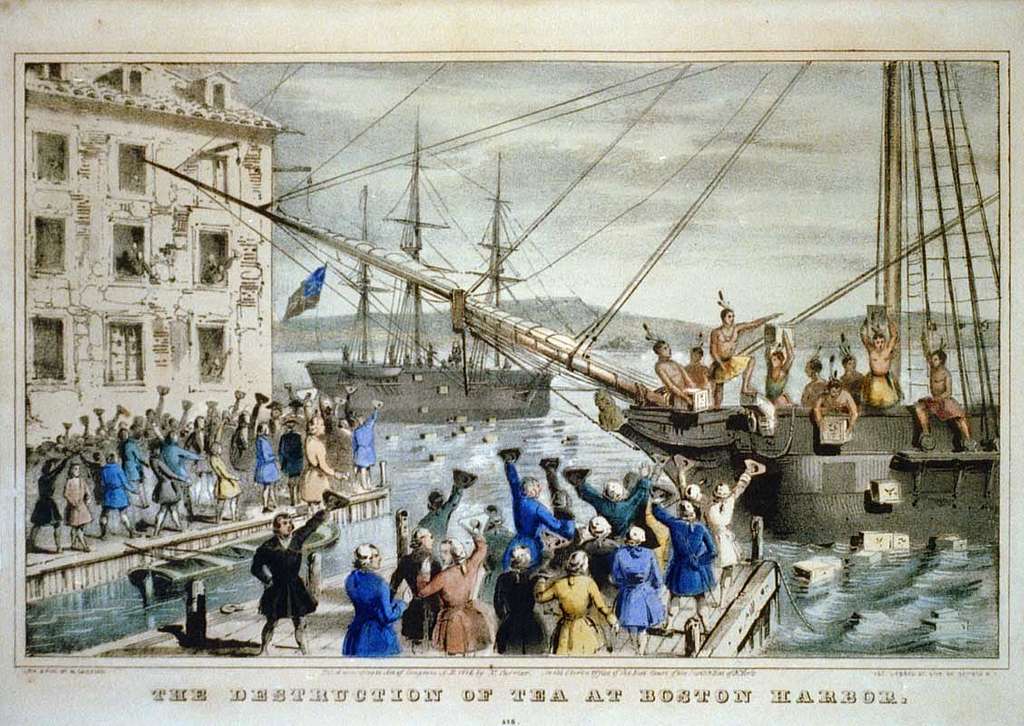Up and down the Kennebec Valley: Revolution effects
by Mary Grow
The American colonies’ war for independence from Great Britain had only limited effects in the central Kennebec Valley. With one important exception (to be described in September), no Revolutionary “event” occurred in this part of Maine. No battles between armies were fought here, although there were some between neighbors and, most likely, among family members.
Many men (your writer found no recorded women) enlisted or were drafted, leaving wives and children to run a farm or business. The war’s economic effects, like taxes, high prices and shortages, percolated this far north, though probably they were less damaging in a mainly agricultural area than in coastal Maine.
One major consequence, however, was the effective elimination of the Kennebec or Plymouth Proprietors. That Boston-based group of British-descended, and often British-leaning, businessmen lost most of its influence in the Kennebec Valley by the end of the war, as Gordon Kershaw explained in his 1975 history, The Kennebeck Proprietors 1749-1775.
The historian summarized two changes wrought by the war and American independence. First, he said, the Proprietors became divided, with many putting other interests ahead of the company’s.
Among the Proprietors were several whose names are familiar today. One who decided to join the rebellion was James Bowdoin, II, the man for whom Maine’s Bowdoin College was named in 1794.
Dr. Sylvester (Silvester) Gardiner, Benjamin Hallowell (and family) and William Vassall all had riverine towns named in their honor. They chose the British side in the 1770s, Kershaw said, as did most family members (except Briggs Hallowell, one of Benjamin’s sons whom Kershaw called “a maverick Whig in a family of Tories”).
Kershaw wrote that several Proprietors, including Bowdoin, Gardiner and Vassall, continued to meet until March 1775. Gardiner and Hallowell holed up in Boston and left for Halifax, Nova Scotia, when the British evacuated the city on March 17, 1776. An on-line source says Vassall went to Nantucket in April 1775 and in August to London, where he spent the rest of his life.
The second change, Kershaw wrote, was that the settlers on the Kennebec took advantage of American independence to ditch not only British control, but control by the Proprietors.
During the Revolution, he said, a group led by Bowdoin and others tried to meet 25 times. Fourteen meetings failed to muster a quorum, and at the other 11, “no important business was transacted.” But after the 1783 Treaty of Paris ended hostilities, the Whig members reactivated the company.
By then, two developments in the Kennebec valley challenged long-distance control. The first local governments had been established, Hallowell, Vassalboro and Winslow (and Winthrop) in 1771, and local leaders and voters were making more and more decisions, especially imposing property taxes to support development. The taxes fell most heavily on the largest landowners, often the Proprietors.
The second development was that during and especially after the war, new settlers, including veterans, moved into the area.
“They sought out the land they wanted, and occupied it. Later, many dickered with the Company for titles,” Kershaw wrote. Others rejected Company claims.
The Kennebec Proprietors continued to make land grants after the Revolution, including in Whitefield, Winthrop and Vassalboro in 1777. They continued to try to deal with settlers who did not have, and often did not want, titles from them. Violence sometimes resulted, including the “Malta War” in 1808.
A few years later, Kershaw wrote, a Massachusetts commission reviewed disputed properties between the Proprietors and the settlers. Its report, approved by the legislature on February 23, 1813, gave the settlers all their land; and in compensation, gave the Proprietors Soboomook (Sebomook) township, north of Moosehead Lake.
Kershaw saw this decision as fair to the settlers, many of whom had made major improvements on their land and who, had the Proprietors gotten it, would have had to pay more money than backwoods people were likely to have.
It was less fair to the Proprietors, he thought: developing their new property would have been expensive and probably unprofitable. The main thing they gained was “the satisfaction of knowing that a festering disagreement had been settled at last.”
Kershaw surmised that the 1813 ruling was the final straw that led the Kennebec Proprietors to disband. In June 1815, he wrote, they voted to sell their remaining land at auction on Jan. 22, 1816 – including lots in Augusta, Waterville, Albion, China, Palermo and Windsor.
The sale was duly held, bringing in more than $40,000. Other business was completed in following years; and on April 26, 1822, “the books of the Kennebec Purchase Company were closed forever.”
* * * * * *
Local historians paid varying amounts of attention to the Revolutionary War’s effects on their towns and cities. James North, in his 1870 history of Augusta, devoted about 45 pages to the years between 1774 and 1783, writing partly about the Revolution and partly about local developments.
North was an unabashed supporter of the Revolution. By the spring of 1776, he wrote, the British colonies’ residents “had attained to that state of feeling which precluded all hope of reconciliation, and made exemption from colonial servitude a primary law of political existence.”
“Unequal as the contest for independence was seen to be, the great body of the people readily committed themselves to it, with full determination to undergo its sufferings and brave its dangers.”
The Tory minority, whom North described as “connected with the long established order of affairs,” soon realized they were witnessing “the efforts of a great people struggling with hardy enterprise, under unparalleled difficulties, of individual freedom and national existence.”
Henry Kingsbury, in his Kennebec County history, was also on the revolutionaries’ side. He mentioned the March 5, 1770, Boston Massacre (when seven British soldiers, facing angry Bostonians, fatally shot five of them and wounded others) as the first event that “sent a thrill of horror up the Kennebec,” despite the miles of wilderness between Boston and the river settlers.
North’s account of Revolutionary events began with the Boston Tea Party on Dec. 16, 1773, and the British retaliatory measures in the spring of 1774, which led to first steps toward creating local Massachusetts authorities to replace the British government.
“These ominous events aroused the sturdy yeomen of ancient Hallowell to patriotic action,” Kingsbury wrote. But he and North agreed that a strong Tory presence – mostly from the Plymouth Company, in Kingsbury’s view – frustrated early reactions.
At a Provincial Congress in Massachusetts that assembled Oct. 7, 1774, and adjourned Dec. 10, North wrote that Gardinerstown Plantation, Winthrop and Vassalboro were represented (the last by a leading citizen named Remington Hobby or Hobbie). No one went from Hallowell, North said, “probably through tory influence which may have paralyzed action.”
Hallowell residents began redeeming themselves early in 1775. In response to a Provincial Congress call to organize for defense, they held a town meeting at 9 a.m., Wednesday, Jan. 25, “to choose officers and to form ourselves in some posture of defence with arms and ammunition, agreeable to the direction of congress” (North’s quotation from the warrant calling the meeting).
North noted that this meeting, for the first time, was not called in the name of His Majesty, the King of Britain.
North said no records of the meeting have been preserved, perhaps because of Tory influence. That influence was also shown at the annual town meeting later in the spring, when voters elected surveyor and Loyalist John “Black” Jones as constable (see the July 24 issue of The Town Line for more on Jones). They promptly rescinded the vote – and then elected him again.
A month later, North reported, Jones had hired a replacement, confirmed at another town meeting. But this same meeting’s voters chose him as a member of a five-man committee, one of whom was to represent Hallowell at a “revolutionary convention” scheduled in Falmouth.
Kingsbury wrote that early 1775 actions included forming a military company and a safety committee. The latter consisted of “principal citizens” and was given “charge of all matters connected with the public disorder, including correspondence with the revolutionary leaders.”
In Kingsbury’s view, “A town of so few inhabitants, however willing, could not give much aid to the continental cause, and its part in the war was necessarily small and inconspicuous.” (Later, he wrote that in 1777 or 1778 Hallowell had only about 100 heads of families listed on its voting rolls.)
North’s account of the early days of the Revolution focused on local issues. Beyond the Kennebec Valley area, Massachusetts organized three provincial congresses in the Boston area: the first from Oct. 7 to Dec, 10, 1774; the second from Feb. 1 to May 29, 1775; and the third from May 31 to July 19 (“a month after the battle of Bunker Hill”). North wrote that Hallowell voted not to send a representative to the third congress; he was silent on participation in the first two.
However, when Massachusetts officials decided to re-establish their legislature, the Great and General Court, and hold a July 19, 1775, session, Hallowell voters elected Captain William Howard their representative.
North said local and provincial government had been pretty much suspended. The new Massachusetts legislature effectively recreated it, including organizing the militia and issuing paper money.
The Continental Congress was doing the same for a national government. Its achievements included renewing mail delivery “from Georgia to Maine” – but only as far as Falmouth, Maine.
Hallowell people got their “letters and news” by ship as long as the river was ice-free. In the winter, North wrote (quoting Ephraim Ballard, who quoted his mother’s account), for several years residents near Fort Western got mail brought “from Falmouth by Ezekiel and Amos Page, who alternately brought it once a month on snow shoes through the woods.”
(North earlier named Ezekiel Page and his 17-year-old son Ezekiel as moving from Haverhill, Massachusetts, to Cushnoc in 1762; the family took two lots on the east bank of the Kennebec. WikiTree says the senior Ezekiel was born in May 1717 and died about March 1799; he and his wife, Anne Jewett [born in October 1725] had five sons, including Ezekiel [born April 30, 1746, in Haverhill; died May 10, 1830, in Sidney, Maine] and Amos [born July 13, 1755, in Hallowell; died Dec. 26, 1836, in Belgrade, Maine] and four daughters.)
The major events of 1776, in North’s view, were the British evacuation of Boston in March, “to the great joy of the eastern people,” and the signing of the Declaration of Independence in July. The Massachusetts government had copies of the Declaration sent to every minister in the state and required each to read it to his congregation the first Sunday he received it.
Kingsbury put more emphasis than did North on how hard the war was on Hallowell. He said that “its growth was retarded and well-nigh suspended,” as the wealthy proprietors abandoned their holdings. His major piece of evidence:
“So great was the depression that even the Fourth of July Declaration was not publicly read to the people.”
By 1776, North said, other instructions from Massachusetts officials made service in the militia compulsory for all able-bodied men between 16 and 60. Anyone who refused to serve was fined, and if he did not pay promptly, jailed.
Lincoln County raised two regiments whose companies drilled regularly. North wrote that some of the enlistees were on an “alarm list,” “minute men” who could assemble “on occasions of sudden alarm.”
North summarized the 1777 equipment of one 26-man company based on the west bank of the Kennebec: it included 15 guns, five pounds of powder and 107 bullets. The bullets were shared among seven people — but some of the seven had neither guns nor powder.
To be continued next week
Main sources:
Kershaw, Gordon E., The Kennebeck Proprietors 1749-1775 (1975)
Kingsbury, Henry D., ed., Illustrated History of Kennebec County Maine 1625-1892 (1892)
North, James W., The History of Augusta (1870)
Websites, miscellaneous.
Responsible journalism is hard work!
It is also expensive!
If you enjoy reading The Town Line and the good news we bring you each week, would you consider a donation to help us continue the work we’re doing?
The Town Line is a 501(c)(3) nonprofit private foundation, and all donations are tax deductible under the Internal Revenue Service code.
To help, please visit our online donation page or mail a check payable to The Town Line, PO Box 89, South China, ME 04358. Your contribution is appreciated!







Leave a Reply
Want to join the discussion?Feel free to contribute!